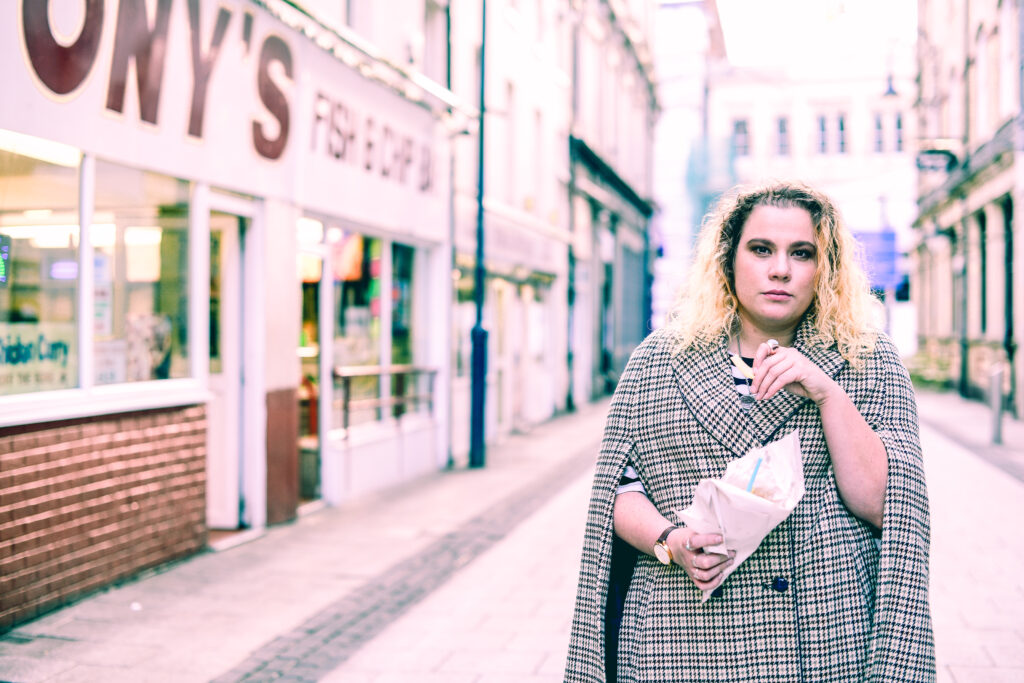
In our latest Playwright interview Director of Get The Chance Guy O’Donnell chats to Welsh Playwright and Director of Chippy Lane Productions Ltd, Rebecca Jade Hammond. Rebecca discusses her career to date, her latest play Right Where We Left Us and her thoughts on opportunities for Playwrights in Wales.
Hi Rebecca, great to meet you, can you give our readers some background information on yourself please?
Born in Cardiff, I am a Welsh writer, dramaturg, actor, lecturer and Artistic Director/Founder of critically acclaimed Chippy Lane Productions Ltd.
In the last few years I have been shortlisted for the Papatango Writing Prize, placed in the top 10% for both the BBC Writers Room and the Verity Bargate Award, and longlisted for Theatre Uncut and the Traverse Theatre. I recently worked with National Theatre Wales and Lagos Theatre Festival on a Writers Exchange. I am published by Methuen Drama and represented by The Haworth Agency.
Academically I lecture at Royal Welsh College of Music & Drama, Mountview and Italia Conti.
As an actor, I trained at Royal Central School of Speech and Drama and have appeared in several big television series including Bafta Cyrmru-nominated comedy The Tuckers (BBC), Silent Witness (BBC) and Trollied (Sky One), Mrs Sidhu Investigates (ITV) and I’m currently filming The Wet Look (Channel 4) starring Iwan Rheon and Steve Speirs.
So, what got you interested in the arts?
The first formative experience I had at the theatre was The Snow Spider (Sherman Theatre, 1993). I had no idea what I was watching but I knew I wanted to be part of it more than anything else in the world.
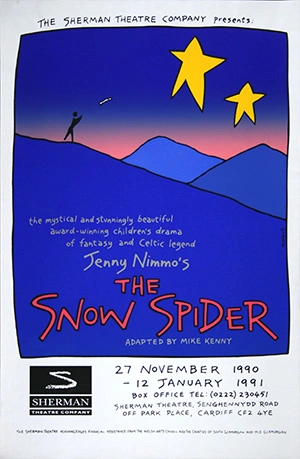
I think I’ve always gravitated towards the arts. Though none of my family have ever been interested in the arts, the idea of building and making something artistic was always something that felt natural to me. At a young age dancing was my life, I was obsessed with ballroom, disco, tap, ballet and cheerleading, until I realised I could sing. I remember being part of West Glamorgan Children’s choir and singing on my own at St David’s Hall at ten years old with a 120 piece orchestra and a full house and thinking, ‘This is magic! More please!’. That led me into Sherman Youth Theatre, Everyman Theatre and Orbit Musical Society. Then to University and Drama School at Royal Central School of Music & Drama. It is a path none of my family have walked, and at times has felt lonely but I have always taken what I do incredibly seriously.
Can you tell us about your writing process? Where do your ideas come from?
The play I have in production at the moment, Right Where We Left Us, is actually my fourth play. My first never got beyond a second draft, I hope to bring that back one day. It’s set on Gwaelod-Y-Garth Mountain and it felt so powerful finishing it. My second did very well in lots of literary competitions, and is another I hope to return to. My third is in development with a London theatre, so we hope and pray that it goes somewhere but one never really knows. You have power in your pen but beyond that you need to find an advocate and believer in your work to take it to production.
I have written about grief, grooming, county-lines, ambition, war, death, PTSD, youth, mental health and love. An eclectic mix but on reflection what binds them altogether is the human heart. The human reaction to these epic themes. I am consumed with how we pick ourselves up from the rubble of trauma and try to get back to life, back to home, back to some form of peace and solace.
In terms of my process, ideas and inspiration come to me in freefall, and get noted on my phone. The list is seemingly random and pretty extensive, a snippet would include:
- Bricks
- Reckoning
- Patterning
- Horn – Nick Drake
- The ecstasy of quietness
I look at these concepts and ideas as seeds that I can come back to later when I eventually get back to writing something new again.
Can you describe your writing day? Do you have a process or a minimum word count?
My process usually consists of mornings in my writing shed or at my desk with a Spotify playlist. Or in Cafe Nero in Wimbledon (the staff even know my ideal spot now!) – I need background hum as I can’t work in silence and I love a little bit of chaos and life. I then walk the dog in the afternoon to debrief with myself. I tend to take more time on things than I used to. Allowing more time between drafts to digest and move forward. Things always come out in the wash when you give it the time and space to breathe. I don’t have a word count or page count. I tend to write for as long as I can handle it and have been known to write for twelve hours without eating if I am in the zone, but wouldn’t recommend this!
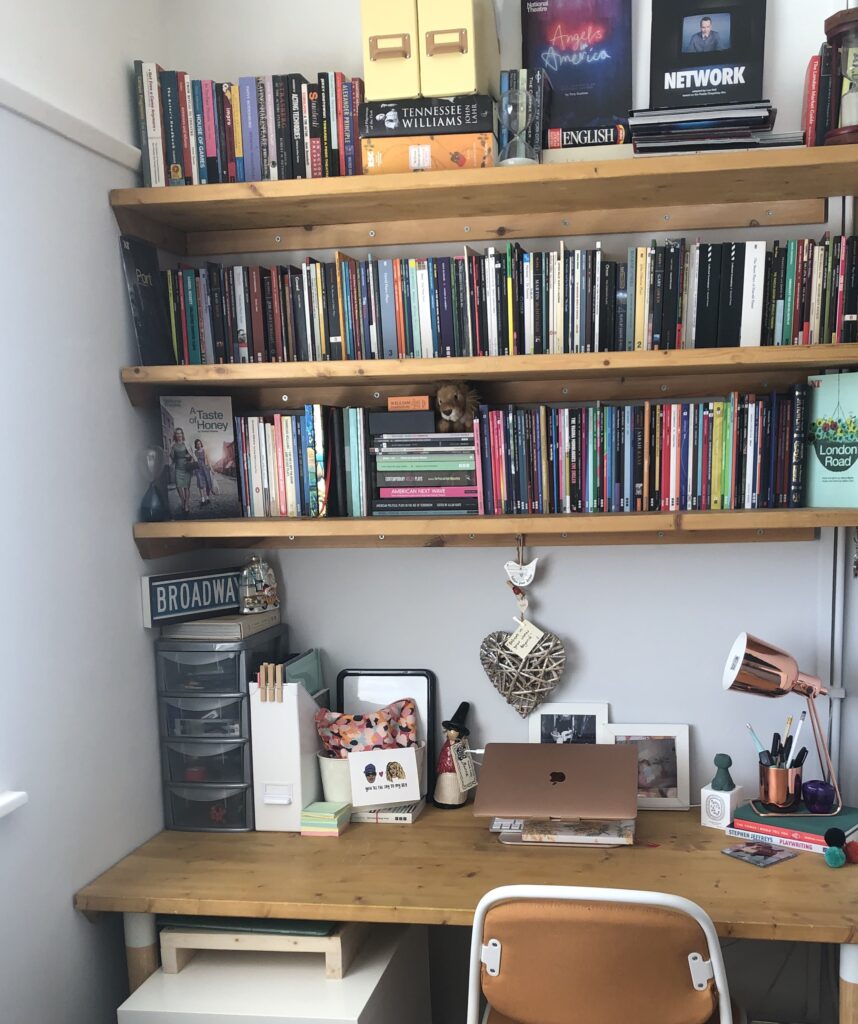
Your latest play Right Where We Left Us , is described as “a heartfelt examination of what happens instead of “happy ever after” Where did the initial spark for the play come from and can you update us on its development?
This play is an acknowledgement of the fragile nature of creative minds and a reminder that our industry is always in a state of delicacy. If the past few years have taught me anything it’s to keep the people you love close and to rid yourself of negative energies.
I wanted to write a piece that explored the murky world of creative collaboration and navigating professional and personal relationships. Right Where We Left Us explores the darkness of ambition and jealousy and how the healing of time can change your priorities and future plans. I long for it to resonate with so many and provide hope for anyone struggling to move forward. To know that you have the power to be ok. You have the power to change the narrative.
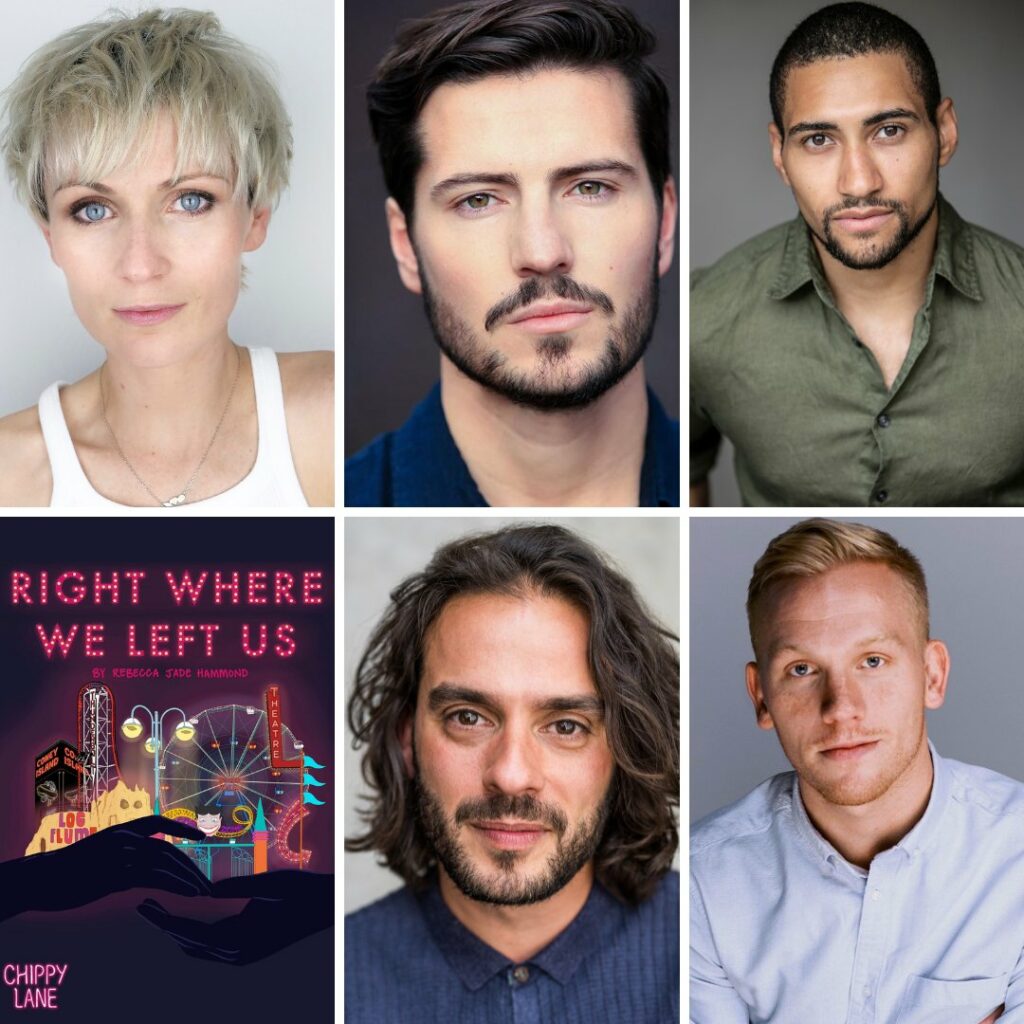
This play was born from the shock of having everything put on hold. As the third wave of the pandemic made it seem impossible to ever get back to the stage I wanted to write a love letter to creative collaboration and the great American memory plays.
The script has been honed throughout various development periods with support from The Bush Theatre, Paines Plough, Theatre503, Sherman Theatre, Chapter Arts Centre and The Carne Trust.
At every stage of development our audiences have seen themselves in the characters, feeling the frustration and longing of lost opportunities and lost love. Our urgency comes from the vulnerability and fear we are all experiencing as hundreds of us are forced to walk away and try to find a new path. We ask if it is ever possible to find fulfilment once the creative drive is gone? Are lost loves better left in memory? Can someone else ever give you closure? Will you alone ever be enough?
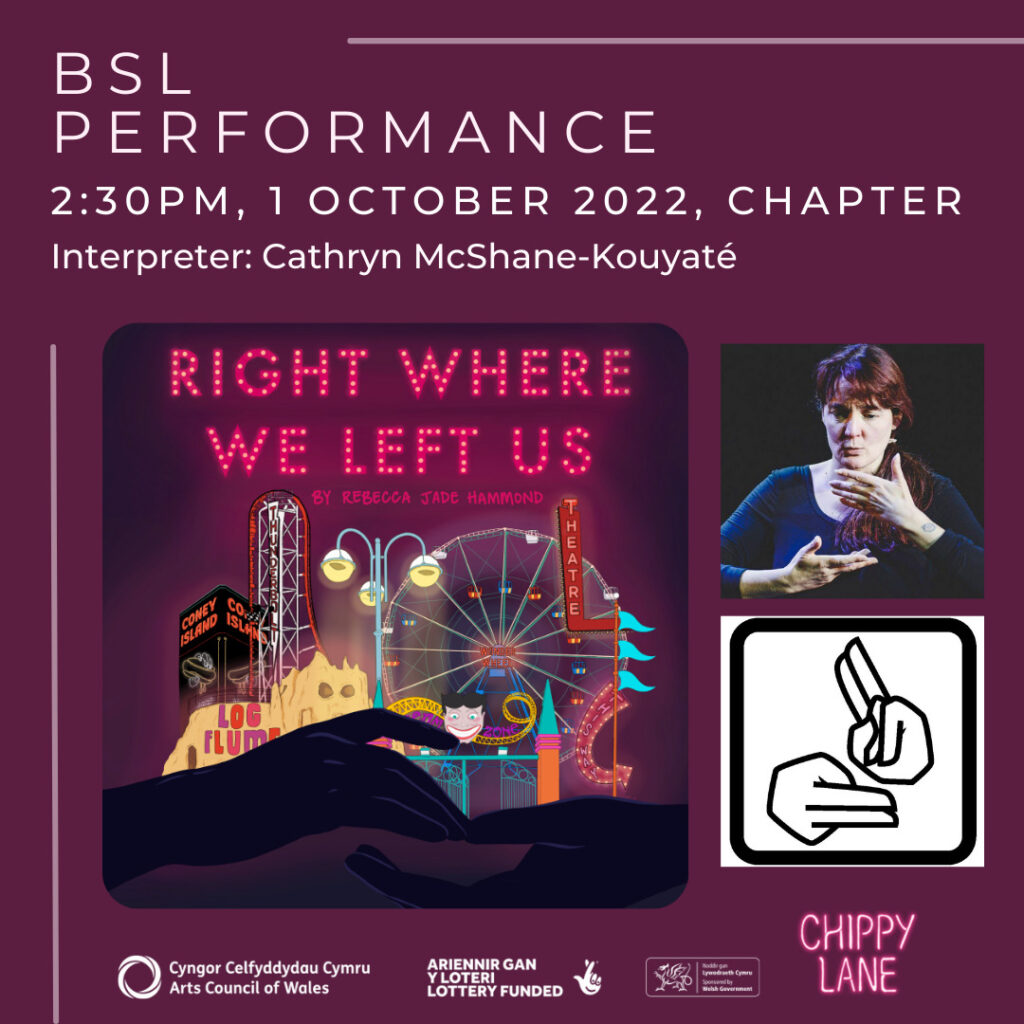
This production will reunite the Welsh creative team from sell-out show Blue, which The Guardian described as “smart and superbly acted” (4 Stars, 2019). Chippy Lane Productions are fast becoming one of Wales foremost new writing companies, at our core is a drive to champion underrepresented emerging talent. Methuen Drama have also agreed to publish this play.
The play will be performed by 2 alternating acting companies, this sounds fascinating, are you able to tell us more about this choice? Are they both performing the same play each night or will it be different?
While the show will be performed by 2 alternating acting companies, the character of T will work across both casts. The companies will alternate shows and while the script will be the same for each, it’s up to an audience to discover the differences!
In the script, the characters have no assigned gender. So as we developed the play we workshopped the characters with actors of all genders. We soon found that the play resonated differently depending on who the performers were. The power dynamics across age, gender and class all changed the experience of watching the play and added nuance and detail in different sections of the story. We wanted to give the audience the opportunity to experience these different versions of the play as we are sure they will be able to see themselves reflected in the characters at different moments. Joyfully, it also means we were able to offer employment to two more actors, which after the past few years feels like a small win for a company who wants to champion Welsh and Wales based voices.
There are a range of organisations supporting Welsh and Wales-based writers. I wonder if you feel the current support network and career opportunities feel ‘healthy’ to you? Is it possible to sustain a career as a writer in Wales and if not what would help?
I wrote about this recently for The Stage as I feel really strongly about it.
The lack of funding across Wales for the arts directly affects a lack of development schemes that go beyond the beginning stages of playwriting. This means that the same canon of (mainly male) Welsh playwrights receive those rare opportunities of having work commissioned. This stunts the progress of more diverse writers, limiting opportunities to have their voices heard on Welsh stages and on stages across the UK.
In 2018, I set up the Welsh Female Writers Group in response to the lack of female voices being commissioned. My hope was to create an inclusive space for female and non-binary creatives to write, no matter their level of experience. More than 120 writers have joined our workshops. Some have gone on to work professionally for stage and screen, set up companies and collaborate together to make work. However, there are still many more voices struggling to get opportunities, commissions, productions and publishing.
I can’t control the future of funding in Wales, or improve the lack of programming opportunities at venues. What I can do is continue to shed light on this vital issue and keep the door open for any Welsh playwright wanting support from Chippy Lane to champion their developing careers. Chippy Lane prides itself on inclusive practice and will do everything we can to affect change in our sector.
If you were able to fund an area of the arts in Wales what would this be and why?
Writing initiatives and development funding for grassroot companies to pair with venues across Wales to make work and tell new regional stories that connect to the respective areas. We need initiatives that take playwrights through to productions. We need venues and companies to take the leap into programming newer / younger writers and supporting them with commissions so our cannon is more diverse and not the same voices heard yearly.
What excites you about the arts in Wales?
There is a wealth of exciting new talent coming through Wales. Whether born here or settling here to train, I truly believe it is an exciting time of positive change.
With the appointment of Chelsey Gillard at The Torch and Steffan Donnelly at Theatr Genedlaethol Cymru it feels like the theatrical keepers of the major buildings and companies are beginning to shift and change for the better in Wales. Along with new work being made by Mari Izzard and Nia Morais at Sherman Theatre, Katie Elin-Salt and Eleri Jones’ show at Theatr Clwyd in the summer. Emily White won the George Devine Award and Faebian Averies won the BBC Audio Drama Award and Connor Allen’s show at Wales Millennium Centre. It feels like the rumblings of more diverse theatre being made is happening and it’s exciting to see.
What was the last really great thing that you experienced that you would like to share with our readers?
I visit the theatre a lot. In 2019 I saw 147 shows and kept a spreadsheet of all of the productions I saw. For what? I have no idea, but for me one of the most difficult things about the pandemic and in particular 2020 was inability to frequent the theatre. In many ways the theatre is my church, a sanctuary for me to learn, laugh and weep. However, since coming back to my usual theatre-going habits I’ve felt like something was missing. I’m not certain whether it’s the heavy weight of the outside world seeping into the auditoriums, but nothing has really cut me deep or moved me since The Passover in early 2020 (pre-pandemic) until now.
The Normal Heart at The National floored me, it will be one that amongst the mountain of shows I’ve seen will sit with me always and I feel privileged I got to see.
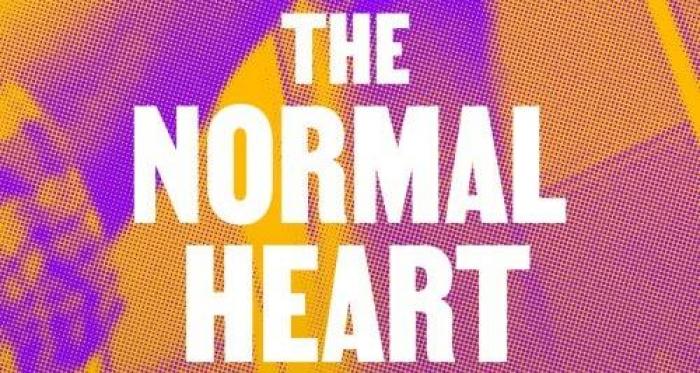
After it finished I felt like I’d come through a war. I could feel the anger of Kramer’s pain in writing it. I felt helpless and powerless and thought about all the lives lost unnecessary. How they fought so hard for acknowledgement and support. It actually haunted me so much that I wrote to the Welsh government to ask if this could be considered as a key text on the curriculum for English and Drama.
“Don’t lose that anger. Just have a little more patience and forgiveness. For yourself as well.” (Kramer, L. 1986)

